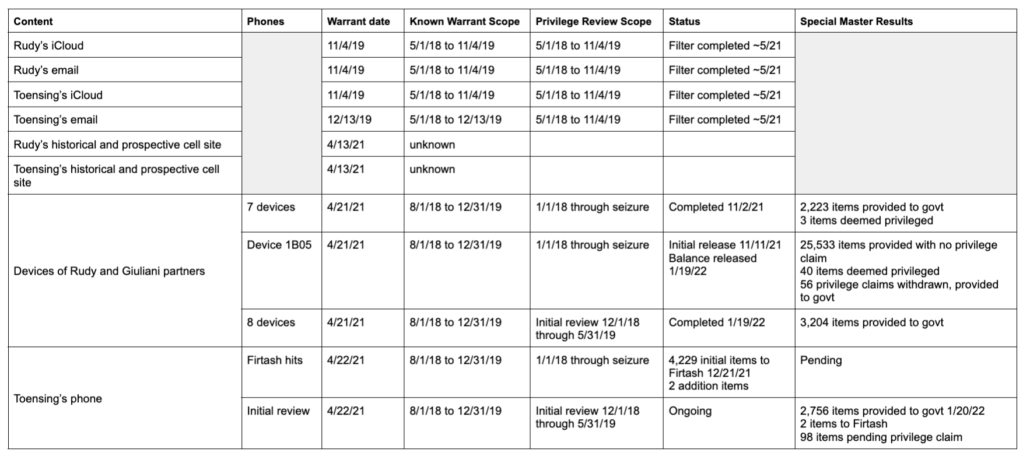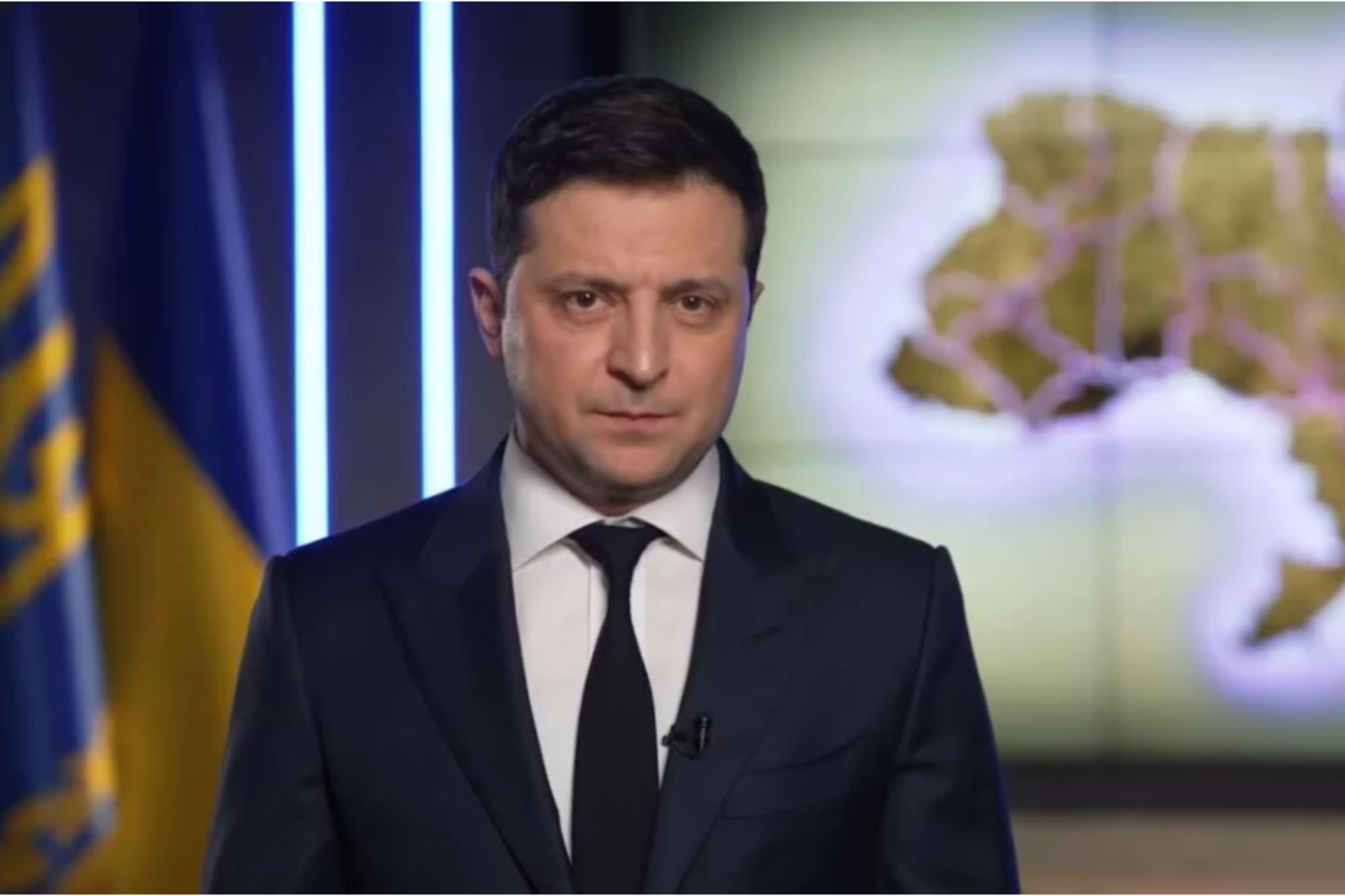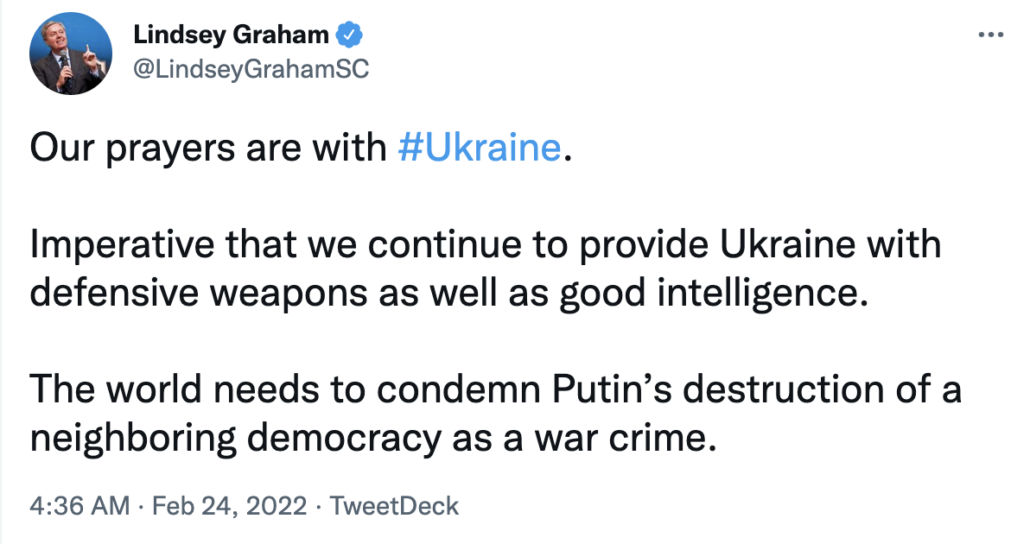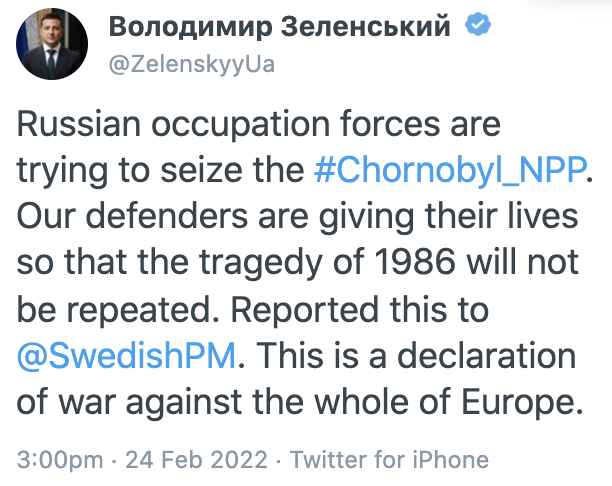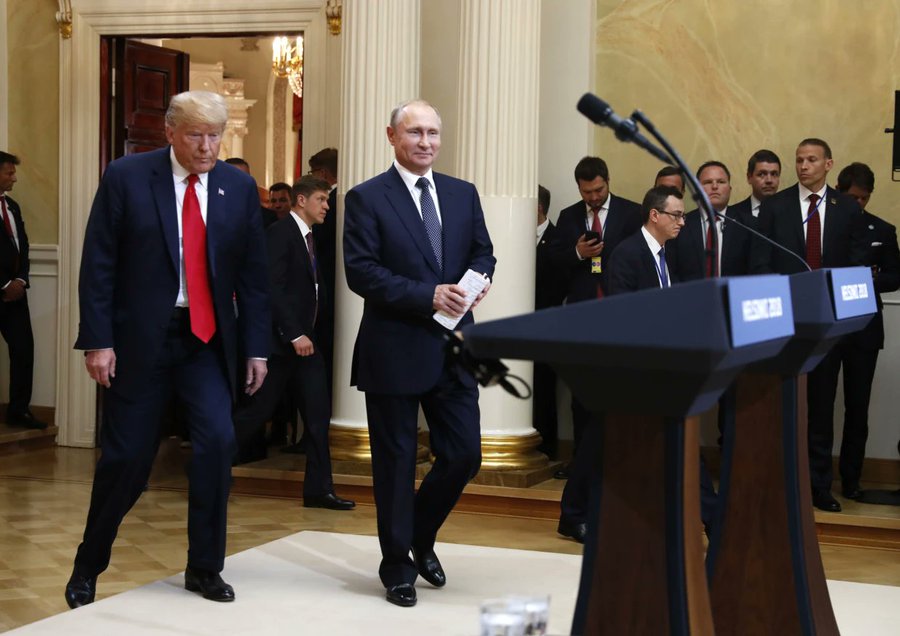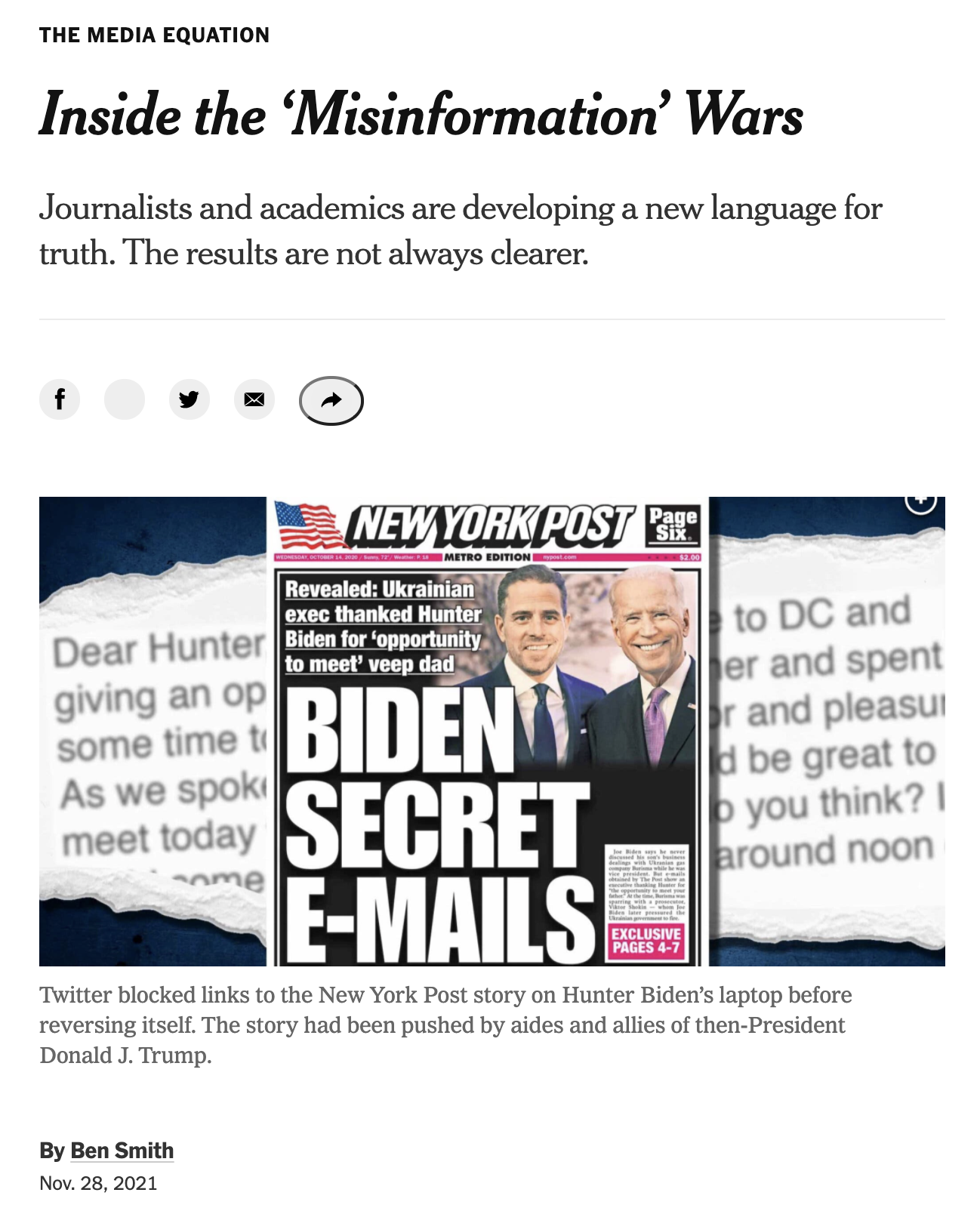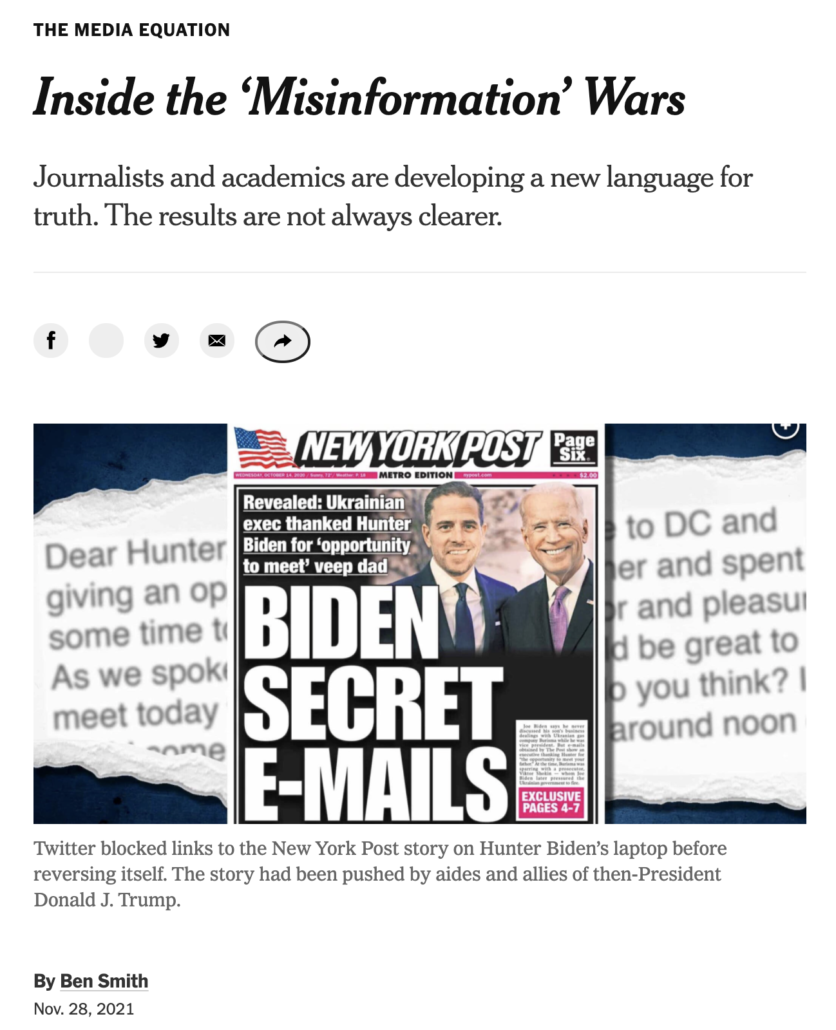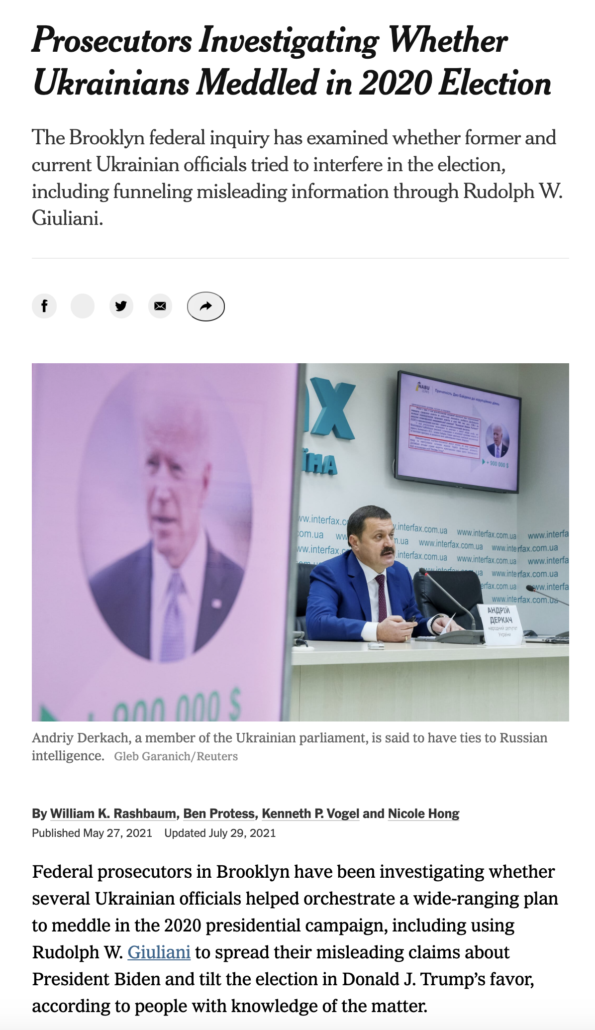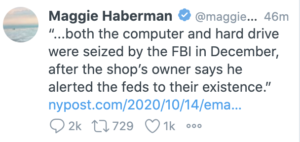Eventually, I want to do a post quantifying all the damage to national security Billy Barr did by thwarting an influence-peddling investigation into Rudy Giuliani in 2019. But first, I want to quantify four ways that Barr is known to have obstructed the investigation into Rudy, effectively stalling the investigation for over 500 days.
The effort is helped by Rudy lawyer Robert Costello’s public claim that DOJ obtained a search warrant on Rudy’s iCloud account sometime in late 2019. That indicates that the investigation into Rudy’s ties to Lev Parnas and Igor Fruman (whether Rudy was the primary target or their business, Fraud Guarantee) already showed probable cause that a crime had been committed before Barr took repeated steps to undermine the investigation.
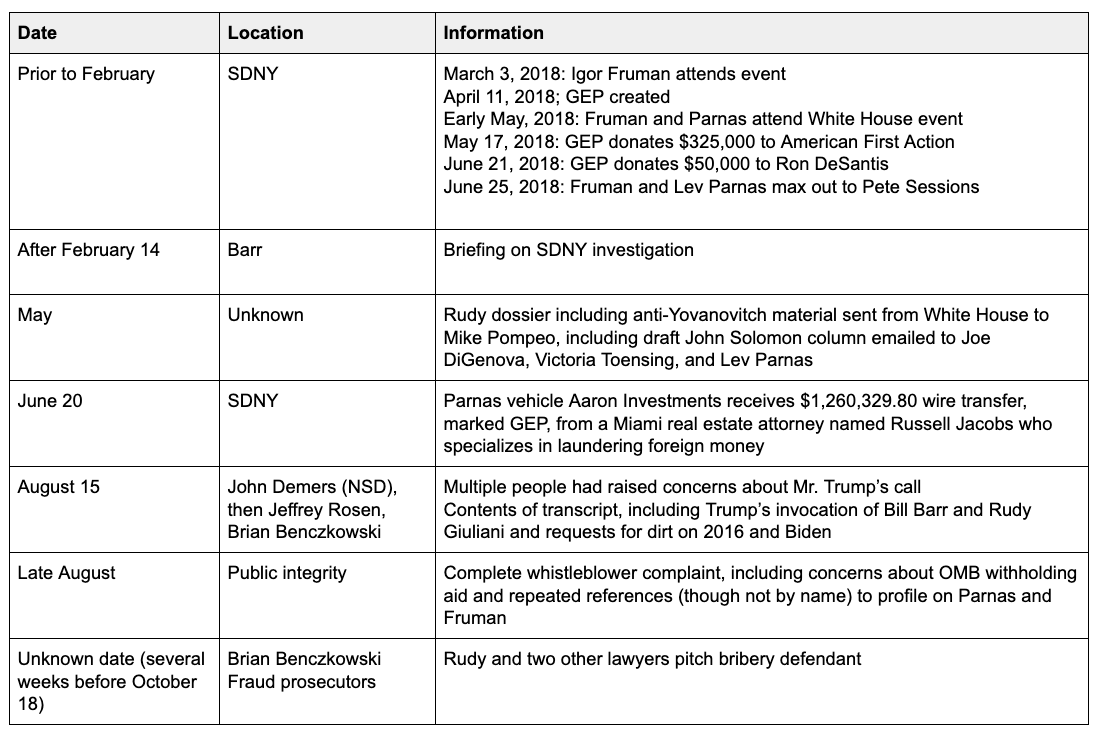
Fail to recuse from an investigation implicating Barr personally
The MEMCON of Donald Trump’s call with Volodymyr Zelenskyy invoked Barr personally, twice, including in the very same response where the President said that Marie Yovanovich would “go through some things.”
Well, she’s going to go through some things. I will have Mr. Giuliani give you a call and I am also going to have.Attorney General Barr call and we will get to the bottom of it.
According to a September 2019 NYT article, National Security Division head John Demers (who remains at DOJ and who oversees the FARA unit that would have a role in this prosecution), Deputy Attorney General Jeffrey Rosen, and Brian Benczkowski learned about the concerns about the call, including that it named Barr, even before the formal whistleblower complaint came in. Barr learned about it via some unexplained means.
It’s not clear what happened in that first round of review, but ultimately prosecutors reviewed it once the formal whistleblower complaint was referred by Joseph Maguire later in August and “declined to open an investigation.”
Mr. Eisenberg and Ms. Elwood both spoke on Aug. 14 to John Demers, the head of the Justice Department’s national security division, according to three people familiar with the discussion. Ms. Elwood did not pass on the name of the C.I.A. officer, which she did not know because his concerns were submitted anonymously.
The next day, Mr. Demers went to the White House to read the transcript of the call and assess whether to alert other senior law enforcement officials. The deputy attorney general, Jeffrey A. Rosen, and Brian A. Benczkowski, the head of the department’s criminal division, were soon looped in, according to two administration officials.
Department officials began to discuss the accusations and whether and how to follow up, and Attorney General William P. Barr learned of the allegations around that time, according to a person familiar with the matter. Although Mr. Barr was briefed, he did not oversee the discussions about how to proceed, the person said.
[snip]
At the end of August, the office of the director of national intelligence referred the allegations to the Justice Department as a possible criminal matter. Law enforcement officials ultimately declined to open an investigation.
While it’s true that Barr outsourced some actions — such as determining what to do with the first report and the White House request that DOJ publicly exonerate him — there’s no indication Barr recused from the investigation and indeed he remained in the loop with the White House about it. His failure to recuse is particularly important because, as the table above notes, he got briefed on the investigation into Parnas and Fruman not long after he was confirmed in February 2019. For most of August and September 2019, Barr and Jeffrey Rosen would have been two of the only people at DOJ who would recognize the danger the whistleblower complaint posed to Rudy and, through him, to Trump himself.
Ensure Public Integrity reviews only the Trump transcript, not the entire whistleblower complaint
Mind you, Barr didn’t conduct the investigation of the whistleblower complaint. Public Integrity prosecutors in the Criminal Division did, overseen by Brian Benczkowski.
According to an October 2019 report, Benczkowski still did not know of the investigation into Parnas and Fruman when he took a meeting with Rudy in the fall to discuss a bribery case implicating the Venezuelan who was paying for some of the Ukraine dirt-digging.
Several weeks ago, Brian A. Benczkowski, the head of the Justice Department’s Criminal Division, and lawyers from the division’s Fraud Section met with Mr. Giuliani to discuss a bribery case in which he and other attorneys were representing the defendants.
That meeting took place before the United States attorney’s office in Manhattan publicly charged the two Giuliani associates, Lev Parnas and Igor Fruman, with breaking campaign finance laws and trying to unlawfully influence politicians, including former Representative Pete Sessions, Republican of Texas. Mr. Parnas and Mr. Fruman were part of Mr. Giuliani’s effort to push Ukraine for an inquiry into Democrats.
“When Mr. Benczkowski and fraud section lawyers met with Mr. Giuliani, they were not aware of any investigation of Mr. Giuliani’s associates in the Southern District of New York and would not have met with him had they known,” said Peter Carr, a department spokesman.
[snip]
Prosecutors in Manhattan informed Attorney General William P. Barr about the investigation of Mr. Parnas and Mr. Fruman soon after he was confirmed in February, according to a Justice Department official. They were required to do so under the department’s rule that requires prosecutors to notify the attorney general of any cases that could generate national news media or congressional attention.
When Mr. Giuliani and other lawyers requested the meeting with the Justice Department to discuss a foreign bribery case, Mr. Benczkowski and the lawyers in the Fraud Section had not been informed of the Manhattan case and agreed to meet.
That exonerates him for being stupid enough to take the meeting, but it reveals something about the review of the complaint: it could not have adhered to the most basic rules of “connect-the-dots” investigations put in place after 9/11 to protect national security.
That’s because the first thing you’re supposed to do when you get a tip that implicates national security is to search DOJ’s holdings to see if the tip connects with any known suspects or investigations. Had this tip been treated like DOJ had been drilling for almost 17 years by the time the tip was received, then investigators would have searched on the OCCRP profile of Parnas and Fruman cited repeatedly in the full complaint.
Had that happened, then the implications of it would have been clear, it would have been referred to SDNY, Benczkowski would have learned about it, and DOJ wouldn’t have been making public exonerations of Trump.
Get OLC to overclassify the Barr connection and delay informing Congress
One likely way DOJ managed to avoid connecting Trump’s quid pro quo with the existing investigation of Parnas and Fruman is by treating the call with Zelenskyy, falsely, as the entirety of the whistleblower complaint. There’s no reference to Parnas and Fruman in the call, and so searching on it would not ID the tie to the SDNY investigation.
That’s one of several things that Steve Engel’s OLC did to attempt to avoid — and succeed in delaying — informing Congress about the complaint.
Engel’s OLC memo (a reprise of the memo that Amy Berman Jackson ruled was just a PR stunt to justify lying to Congress) claimed that the whistleblower complaint pertained exclusively to the conduct of the President and as such did not pertain to the Intelligence Community and so didn’t need to be shared with Congress. The only way to reach this decision would be to ignore the parts of the whistleblower complaint that deal with abuse of classification and the withholding of funds.
The other thing OLC did was to — at first– treat mentions of Barr and Rudy, as well as Ukraine and Zelenskyy, as Top Secret, even though the White House had only deemed those references to be Secret.
This effort, both to avoid informing the Intelligence Committees and, once he did, to hide key details from them, ultimately failed. But it did delay the discovery of the call from August to September 2019.
Warn Rupert Murdoch
Bill Barr had a meeting at SDNY the day before Parnas and Fruman were arrested on October 9. He went from there to a meeting with Rupert Murdoch, at Murdoch’s home.
It’s unclear what happened at that meeting, but Sean Hannity didn’t get on his flight to Vienna to meet with Dmitro Firtash, thereby avoiding even closer legal involvement in yet another Trump scandal.
There’s no evidence I know of that Barr similarly warned Rudy — Rudy canceled his trip, too, but it probably only took the arrest of Parnas and Fruman to persuade him of the wisdom of doing that. So I don’t consider this an act of obstruction protecting Rudy — just an act of obstruction protecting Sean Hannity.
Parnas has alleged that he was only arrested as a way to keep him silent about all this. While there’s a lot of reason to believe that’s possible, I’m not aware of proof that it did. It is, notably, one thing he was dangling his cooperation on with SDNY before he got remarkably quiet as the investigation into Rudy kicked into active mode.
Attempt to replace Geoffrey Berman with a Barr flunky
As noted, if we can believe Costello, then at some point SDNY did manage to conduct a search on Rudy’s iCloud. One possibility is that DOJ justified a search on Rudy after learning that Parnas had deleted his own iCloud account.
We may get more details of how that occurred with the Special Master argument.
For a time, the impeachment investigation presumably stalled any investigation into Rudy.
But last summer, at a time between the time when Rudy would have been implicated in the President’s Ukraine-related impeachment but before the time Rudy was attempting to undermine the election in explicit service of the President, Barr fired Geoffrey Berman. As Berman described, Barr attempted to bypass succession rules to temporarily put his own flunky in charge of the office, much as he had put Timothy Shea in at DC USA to kill investigations into Roger Stone, Mike Flynn, and (probably) Erik Prince.
By refusing to go along with Barr’s false claims that he had quit, however, Berman succeeded in ensuring that Audry Strauss, his then-Deputy, would replace him, where she remains today.
In all of Berman’s communications about why he dug in, he emphasized that there were investigations he wanted to see to completion, presumably including but not limited to this Rudy investigation.
Again, this effort failed. But, given what happened in DC, it is almost certain that this was an attempt to protect Rudy (and Steve Bannon).
DOJ used the election to refuse to approve a warrant on Rudy. And (while I’m having difficulty finding it) they imposed a policy requiring higher approvals for obtaining warrants on attorney content.
Effectively, that provided a way to stall the search into Rudy until April 20, 2021, when Lisa Monaco was approved.
Bill Barr tried, repeatedly, to entirely kill the investigation into Rudy, like he killed prosecutions of Stone and Flynn. But ultimately, one after another DOJ professional thwarted his attempts, and his abundant efforts to protect Rudy only managed to delay the investigation from October 2019 to April 2021.
Update: William Ockham notes that the change in policy was imposed on December 30, 2020, after Barr had resigned and at a time when Acting Attorney General Jeffrey Rosen knew that Joe Biden would take over DOJ. The new policy required consultation with a designated attorney in Office of Deputy Attorney General.
Within OEO, the Policy and Statutory Enforcement Unit (PSEU) is the section that provides this consultation. See Office ofthe Deputy Attorney General Guidance on AttorneyClient Privilege andAttorney Work Product Filter Protocols/or Search Warrants (July 2020). In many cases – particularly those involving significant investigations and high-profile matters – proposed searches are separately reported in urgent reports to the Attorney General and the Deputy Attorney General. To ensure mo!”e uniform notification procedures going forward, PSEU should notify the Office of the Deputy Attorney General (ODAG) of proposed searches involving subject attorneys. ODAG will assign an attorney to handle this responsibility who has the requisite knowledge and experience to provide meaningful input to PSEU. That attorney will provide updates to the Deputy Attorney General as necessary. Absent exigent circumstances, the OEO/PSEU consultation in Section 9-13.420 shall not be concluded until after ODAG has been notified and provided with an opportunity to provide input.
While probably not the sole intent, this may be why the search on Rudy was not approved until Lisa Monaco was confirmed on April 20.


